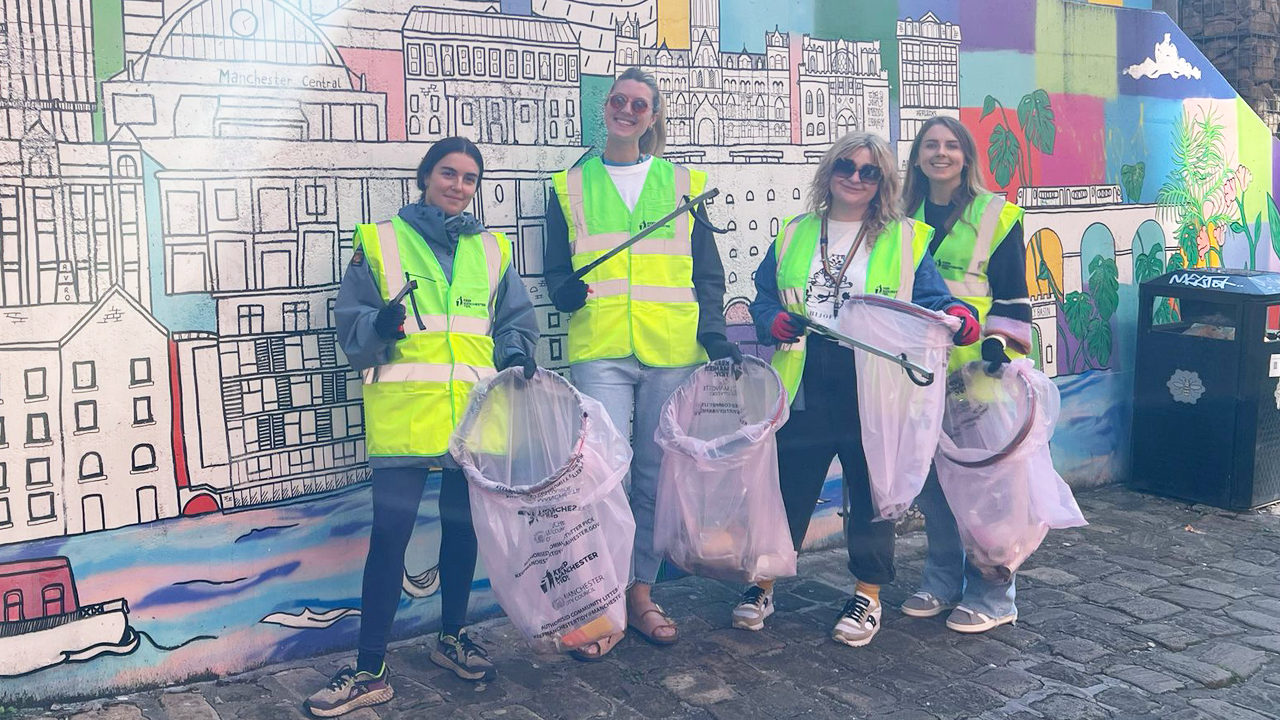
19, September 2024
The Benefits of Litter-Picking
Community litter-picks can make a positive difference to your community, your planet – and you! Here’s how they help, and how to get involved…
Benefits of Litter-Picking for the Environment
The benefits of litter-picking for the environment might seem obvious: no one wants to see rubbish making the place look untidy. But the real harm litter can do to our planet runs so much deeper than aesthetics. According to National Highways, the RSPCA received over 10,000 reports of animals trapped in discarded rubbish, or killed or injured because of it, in the last three years. And when litter is disposed of irresponsibly, it often ends up in Nature. At least eight million tonnes of plastic end up in the sea every year – and floating plastic rubbish makes up about 40 percent of the surface of the ocean, worldwide. All this might sound a bit glum, but the positive news is that by joining in with a litter-pick, you can help make a huge difference to the natural world.
Benefits of Litter-Picking for Communities
Litter-picks aren’t just good for wildlife, they can help humans too! The obvious advantage of cleaning up communities is that everyone gets to live in a tidier environment. But getting involved in community clean-ups can help your mental and physical health as well. Litter-picking is a great way to get outside and enjoy some gentle exercise. The teamwork element of a litter-picking event can help relieve loneliness, and provide an opportunity to get to know your neighbours. Encouraging children to join in with a supervised litter-pick is a wonderful way to teach them about the importance of looking after their environment. Focusing on the task of finding litter and removing it can help distract you from worries or negative thoughts. Plus, there’s a real sense of satisfaction and achievement that comes with taking part in tidying up the area. And as we’ve mentioned here many times before, noticing Nature can promote feelings of wellbeing, as well as encouraging you to connect with the natural world and want to protect it.
Our Community Litter-Pick

Some members of our team recently took part in a community litter-pick organised by the management of our office building in Manchester. It was a bright, early-autumn day and we donned our gloves and hi-vis and headed out along the canal in search of rubbish – and, of course, Nature. While we were busy filling our bin bags with litter, we discovered Nature thriving on the towpath. There were loads of toadstools, tall teasles and Canada geese. Masses of bees and hoverflies were feasting on the purple daisies of aster plants, late-blooming buddleia was serving butterfly buffets – and we even foraged some lemon balm! It was a perfect example of how Nature can be found in the most unexpected places and of how joining a litter-pick can help you engage with and appreciate the natural world.

Tips for Litter-Picking
Litter-picking is a brilliant thing to do, but it can come with risks, such as road safety dangers and broken glass and other hazardous litter. It’s also really important to make sure any collected rubbish is disposed of correctly – dumping bags of litter next to a bin, for example, could be classed as fly-tipping. If you’re just thinking of carrying out a short clean-up very close to your home, use gloves and litter-picking tools, avoid any sharp or dangerous litter and dispose of the rubbish you collect in your appropriate household recycling bins.
If you're interested in organising a community litter-pick yourself, it's important to do things properly and address any potential dangers. The #LitterHeroes website contains information and resources, including a downloadable guide to organising a litter-pick. If you register as an official #LitterHero, they’ll send you a copy of their risk assessment template to fill in for your event(s).
Ideally, it’s best to take part in an organised litter-pick (like this one in Peterborough that recently discovered a crisp packet from 1997!). Organisers of litter-picking events should carry out a risk assessment, provide equipment and hi-vis clothing and arrange with the council for collected rubbish to be disposed of appropriately. Joining an organised clean-up means you’ll get to meet others in your community and work as part of a team to make a real difference to the area.
How to Volunteer for Litter-Picking Events
Community litter-picks happen all over the UK. If you’d like to join in with one near you, contact your local council or visit their website to find out more. Local social media groups are also a good place to find out more about organised clean ups in your area. And the #LitterHeroes Facebook group could help you connect with litter-pickers near you.

